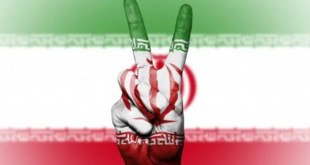VIENNA (AFP) — Iran threatened Thursday to further reduce cooperation with the UN atomic agency if new sanctions are ordered and insisted its uranium enrichment programme had gone too far to turn back.For “each action there is a reaction, prompt reaction by Iran and that will continue”,” Iran’s ambassador to the International Atomic Energy Agency (IAEA), Ali Asghar Soltanieh, told reporters at a meeting of the IAEA’s 35-nation board of governors.
The UN Security Council has imposed two sets of sanctions since December in a bid to get Iran to halt uranium enrichment — which can make fuel for reactors or for a bomb — and to cooperate with an IAEA investigation over concerns Iran seeks nuclear weapons.
IAEA chief Mohammad Al Baradei reported Wednesday that the agency’s ability to monitor Iran’s nuclear work is “deteriorating” due to the reduced Iranian cooperation.
Baradei also told the board that Iran is still expanding uranium enrichment work, in defiance of the Security Council.
The IAEA board wrapped up its debate Thursday after both the United States and Europe warned that new UN sanctions against Iran loomed.
US Ambassador Gregory Schulte told reporters: “We want negotiations. We want negotiations that get us to a diplomatic settlement.” “But for Iran to enter those negotiations, it needs to listen to the board of governors. It needs to listen to the Security Council and it needs to suspend those activities causing such international concern,” Schulte said.
Iran refuses to suspend enrichment, saying it has the right to a peaceful nuclear programme under the Non-Proliferation Treaty (NPT).
The Islamic state has reacted to sanctions already imposed by stopping voluntary cooperation with IAEA inspectors.
This had included visits to sites that are not strictly nuclear, such as the Parchin military facility where conventional explosives are tested and where there was concern nuclear explosions were being simulated for weapons testing.
Iran is now only allowing inspections obligated under safeguards clauses attached to the NPT and which authorise verifying that nuclear material is not being diverted to military uses.
But Soltanieh said Iran’s patience was wearing thin, as it is threatened with new sanctions.
Asked if this meant reducing safeguards cooperation, the last basis on which IAEA inspectors have access to Iran, Soltanieh said: “Read between the lines, I said. I said the options are exhuasted.” Soltanieh said Iran has mastered uranium enrichment and it is now too late for it even to consider suspending this sensitive technology.
“The suspension which has no technical and legal ground, now has lost its political merit as well. There is no way that suspension can be justified,” Soltanieh said.
“The fact of the matter, confirmed by the IAEA is now we are the master of technology.” He said: “Therefore let’s be pragmatic, sit down together and Iran is fully prepared to ensure non-diversion of enrichment activities to prohibited purposes.” Schulte, who says Iran has not fully mastered enrichment, said: “The Iranian ambassador spins faster than any centrifuge.” Tehran denies US accusations that it wants nuclear weapons.
Washington says it wants a diplomatic solution to the standoff but has not ruled out military action.
Iran had, as of May 13, over 1,300 centrifuges enriching uranium at the underground facility in Natanz, according to Baradei.
It could start industrial scale production with 3,000 centrifuges running by the end of June, a senior official close to the IAEA said.
That number could make enough enriched uranium for a bomb in less than a year, experts say.
Baradei also estimates that Iran could have 8,000 centrifuges running by December, diplomats said.
 Eurasia Press & News
Eurasia Press & News


